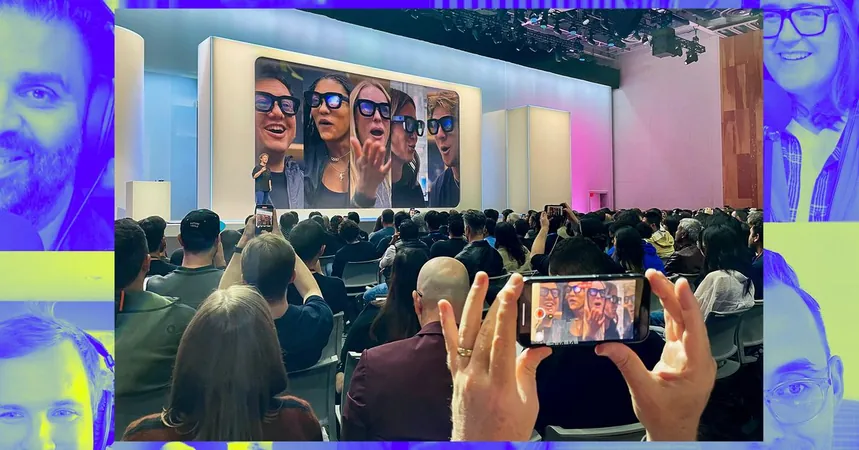
The Battle for Online Advertising: YouTube CEO Defends Google Amid Antitrust Trial
2024-09-17
Overview of the Antitrust Trial
In the ongoing landmark antitrust trial against Google, a key term emerged: "parking." The government is probing whether Google's acquisitions of rising competitors in the online advertising sector were merely a strategy to suppress potential threats by sidelining them within the company's vast ecosystem. This fundamental question is critical to the government's case against Google.
Neal Mohan's Testimony
Kicking off the second week of the trial, Neal Mohan, YouTube's CEO and a long-standing executive in Google's advertising division, took the stand. Mohan, who joined Google in 2008 after its acquisition of DoubleClick—a pivotal move that established Google’s advertising dominance—has been an advocate for several acquisitions, including that of Admeld, a company crucial to the current lawsuit.
Government's Argument Against Google
The Department of Justice (DOJ) sought to show that Google has constructed an unassailable advertising empire by monopolizing all three significant components of the ad tech stack. These components include the third-party systems used by publishers to offer ad inventory, the platforms advertisers utilize to purchase ads, and the intermediaries that facilitate the buying and selling processes. The DOJ argues that Google's monopoly hampers real competition and ultimately diminishes the overall ecosystem, harming everyone involved except for Google itself. When rivals emerged, Google allegedly chose to "park" them — acquiring and then sidelining them.
Evidence of 'Parking'
An intriguing moment in the trial revolved around an email exchange exposed by DOJ attorney Aaron Teitelbaum, wherein a Google executive suggested that acquiring Admeld could be a way to "park" a potential threat. The emails suggested that acquiring a company with significant market traction would allow Google to address competitive concerns from a position of strength.
Mohan's Counterarguments
Mohan countered this narrative, denying that "parking" meant to extinguish competitive threats. Instead, he claimed that upon acquiring a company, Google allowed it to continue operating largely independently while gradually integrating its technology. He maintained that such a process could take several years, emphasizing that the continued operation of acquired products indicated their value to Google, not their defeat.
Competitive Landscape
During his extensive testimony, Mohan insisted that Google was merely striving to stay ahead in a highly competitive industry filled with formidable rivals such as Facebook, Microsoft, and Yahoo. He cited that managing all facets of the advertising process ensures not only the quality of ads but also the safety and efficiency of the platforms involved.
Integration Analogy
In a poignant exchange, Jeannie Rhee, one of Google’s attorneys, had Mohan reiterate the "parking" concept and recalled an email from 2008 where he likened the integration of DoubleClick to "changing the engines on a plane while flying." This analogy aimed to highlight that Google maintained continuous development and improvement post-acquisition, rather than allowing the acquired companies to wither.
Contrasting Perspectives
The crux of the dispute rests on contrasting perspectives: the DOJ views Google's integrated approach as a mechanism for stifling competition through unfair practices, while Google contends that such integration is essential for creating superior advertising solutions in a competitive marketplace.
Government's Additional Evidence
The government has also pointed to evidence indicating that it is nearly impossible for companies to detach from Google’s services. Many publishers feel trapped, unable to shift away from Google’s ad offerings due to their reliance on its extensive demand and access to platforms like Search and YouTube. Such a situation, according to the government, illustrates Google's willingness to invest heavily in purchasing potential competition to maintain its status quo.
Admeld Acquisition Details
In 2011, Google acquired Admeld for over $400 million—a figure the DOJ claims was inflated and indicative of Google's strategy to eliminate competition. Although the DOJ investigated the deal, it eventually allowed it to proceed. Today, Admeld's technologies are embedded in Google's leading advertising exchange, AdX, with little remaining of the original company itself.
Conclusion
The question of whether Google's actions represent beneficial or potentially illegal parking ultimately lies with Judge Leonie Brinkema, whose decisions will shape the future of this case. While she remained largely silent during Mohan's testimony, the world is keenly watching how this influential trial unfolds and what it might mean for the landscape of online advertising moving forward.




 Brasil (PT)
Brasil (PT)
 Canada (EN)
Canada (EN)
 Chile (ES)
Chile (ES)
 España (ES)
España (ES)
 France (FR)
France (FR)
 Hong Kong (EN)
Hong Kong (EN)
 Italia (IT)
Italia (IT)
 日本 (JA)
日本 (JA)
 Magyarország (HU)
Magyarország (HU)
 Norge (NO)
Norge (NO)
 Polska (PL)
Polska (PL)
 Schweiz (DE)
Schweiz (DE)
 Singapore (EN)
Singapore (EN)
 Sverige (SV)
Sverige (SV)
 Suomi (FI)
Suomi (FI)
 Türkiye (TR)
Türkiye (TR)